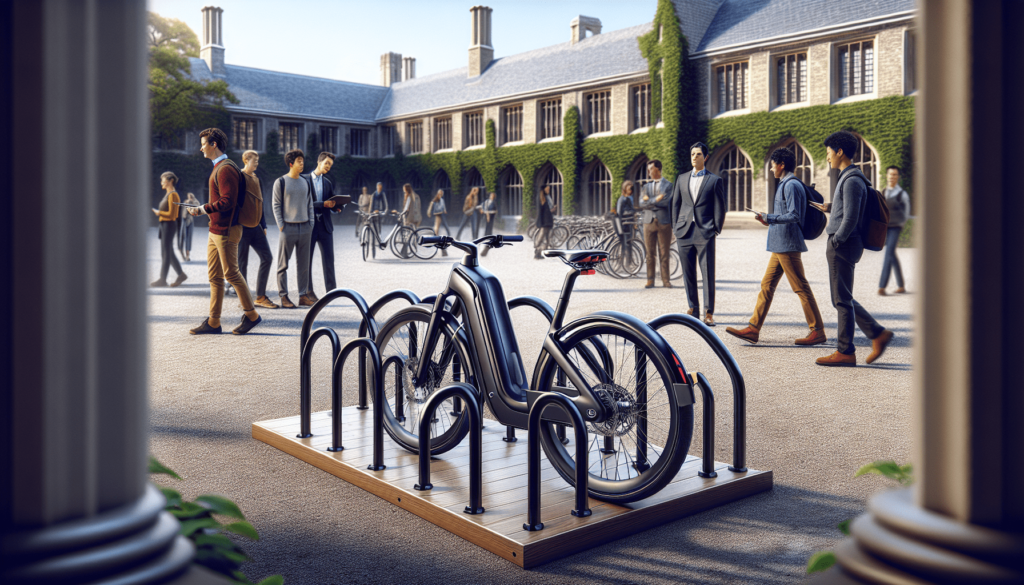Welcome to the article that explores the question: “Are E-bikes Allowed On College Campuses?” This article will delve into the rules and regulations surrounding the use of e-bikes on college campuses and provide you with the information you need to know. Whether you are a student looking for a convenient mode of transportation or a staff member wanting to understand campus policies, this article will help shed light on the topic. So sit back, relax, and let’s navigate the ins and outs of e-bikes on college campuses together.
“Are E-bikes Allowed On College Campuses?”
Have you ever wondered if you can ride your e-bike around your college campus? Let’s dive into the rules and regulations regarding e-bikes on college campuses.
Understanding E-bikes
E-bikes, also known as electric bicycles, are becoming increasingly popular due to their convenience and environmental benefits. But what exactly is an e-bike? E-bikes are bicycles with an integrated electric motor that assists with propulsion. They typically have a maximum speed of around 20 mph and come in various styles, including mountain bikes, cruisers, and commuter bikes.
Types of E-bikes
There are several types of e-bikes available on the market, each with its own unique features and capabilities. Some common types include:
Pedal-Assist E-bikes
Pedal-assist e-bikes require the rider to pedal in order to engage the electric motor. The motor provides assistance based on the amount of force applied to the pedals, making it easier for riders to tackle hills and long distances.
Throttle-Controlled E-bikes
Throttle-controlled e-bikes, on the other hand, have a throttle that allows the rider to engage the electric motor without pedaling. These e-bikes are similar to scooters or motorcycles in the way they operate.
Folding E-bikes
Folding e-bikes are compact and easily portable, making them ideal for commuters who need to combine biking with public transportation or store their bike in a small space.

Benefits of E-bikes on College Campuses
E-bikes offer several advantages for college students, faculty, and staff who need to navigate large campuses. Some of the benefits of using e-bikes on college campuses include:
Environmentally Friendly Transportation
E-bikes produce zero emissions, making them a sustainable mode of transportation that reduces carbon footprint.
Cost-Effective
Compared to owning a car or using public transportation, e-bikes are a cost-effective alternative for getting around campus.
Time-Saving
E-bikes allow riders to travel faster than traditional bicycles, saving time on commutes between classes or campus buildings.
Health Benefits
While e-bikes provide assistance with pedaling, riders still get a workout and improve their physical health by using them regularly.
Regulations for E-bikes on College Campuses
Before riding your e-bike on campus, it’s important to understand the rules and regulations that govern their use. While policies may vary between colleges and universities, here are some common regulations that you may encounter:
Speed Limits
Many college campuses have speed limits for all modes of transportation, including bicycles and e-bikes. Be sure to follow posted speed limits and ride at a safe speed to avoid accidents.
Pathway Restrictions
Some campuses may restrict where e-bikes can be ridden, such as pedestrian-only zones or designated bike paths. Pay attention to signage and markings to ensure you are riding in approved areas.
Parking Regulations
Just like with cars, there may be specific areas designated for e-bike parking on campus. Improperly parked e-bikes may be subject to fines or removal by campus security.
Helmet Requirements
Certain colleges may require e-bike riders to wear helmets while operating their e-bikes on campus grounds. Make sure to comply with any helmet regulations to avoid penalties.

Advancing Sustainability Through E-bikes
As colleges and universities strive to become more sustainable, e-bikes can play a role in reducing carbon emissions and promoting eco-friendly transportation options. By allowing and encouraging the use of e-bikes on campus, institutions can contribute to a greener environment and set an example for students, faculty, and staff.
Helpful Tips for E-bike Riders on College Campuses
If you’re considering using an e-bike on your college campus, here are some helpful tips to enhance your riding experience:
Maintain Your E-bike
Regular maintenance is crucial for keeping your e-bike in good working condition. Check the tires, brakes, and battery regularly to ensure safe and reliable operation.
Secure Your E-bike
Invest in a quality lock to secure your e-bike when parked on campus. Preventing theft is essential for protecting your investment and ensuring you have a reliable mode of transportation.
Stay Informed
Stay up-to-date on the rules and regulations regarding e-bikes on your college campus. Attend orientation sessions or workshops that provide information on safe riding practices and campus-specific guidelines.
Join E-bike Communities
Consider joining e-bike clubs or groups on campus to connect with other riders, share tips and advice, and participate in group rides. Building a community of e-bike enthusiasts can enhance your overall experience.
Conclusion
In conclusion, e-bikes are a convenient and sustainable mode of transportation that can benefit college campuses. By understanding the regulations, benefits, and best practices for using e-bikes on campus, you can make the most of your e-bike experience while contributing to a greener environment. Whether you’re a student, faculty member, or staff member, consider incorporating an e-bike into your daily commute and enjoy the many advantages it offers. Ride on!

